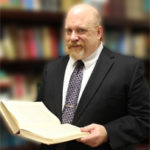 Article by Dan Phillips: Original source here.
Article by Dan Phillips: Original source here.
Christian worship is a supernatural event – but it is not a magic show.
In pagan worship, forms and rituals are thought to be inherently effective. The Latin phrase is ex opere operato, “from the work worked.” It is the idea that we can do things that in turn will make God do things. This is the essence of paganism and of magic: that forms of worship or manipulation produce supernatural effects simply by our performing them correctly.
In Harry Potter, it’s saying the right gibberish-Latin words (“Wingardium leviosa!”). In other literature, it’s gestures, or words-plus-gestures. In some lands, it’s sacrifice and incantation.
My fear is that some evangelicals – despite our call to reject all paganism – unwittingly entertain a faux-baptized form of the same sorts of expectations and beliefs.
How so?
We (correctly) affirm that the Bible is not just a book, not a mere collection of human musings. It is the word of God, “living and active and sharper than any two-edged sword” (Hebrews 4:12). It is “God-breathed” (2 Timothy 3:16), and communicates the mind of God (1 Corinthians 2:12-13). It is the means of saving faith (Romans 10:17), and of growth in holiness (John 17:17). It is truly a marvel, a gift from God.
So we (again correctly) make the preaching of the Word the center of our corporate worship. This reflects the stated priorities of Christ (John 8:31-32) and His apostles (1 Timothy 4:13; 2 Timothy 4:2). So far, so good.
But here comes the disconnect: sometimes both preacher and hearers get the idea that, if we do that right – that is, preach the Word faithfully – then God must do great and wonderful things, along the lines of our expectations. Sinners will be saved, saints will be transformed and matured, churches will grow. Glory all around. It’s guaranteed!
Right? Wrong.
I yield to no man in my absolute conviction of the centrality of God’s written word to all thought, faith, worship and practice. It is that very conviction which compels me to point out the corollary truth:
The glory of God requires not only faithful preaching of the Word, but also faithful hearing of the Word.
Once you see it, you will find this verity literally all over Scripture. Take Deuteronomy 28:1 – “And if you faithfully obey the voice of the LORD your God, being careful to do all his commandments that I command you today, the LORD your God will set you high above all the nations of the earth.” This verse brims with vital truth.
We see here the voice of Yahweh your God – something many Christians say they long to hear. But what they mean by it is not what God means by it. They mean some mystical, subjective inner experience, where they feel something that they identify as God’s voice. This verse means nothing of the kind. It locates God’s voice not within us, but in God’s commandments. God’s voice is God’s written Word.
But beyond that, note that God’s blessing on national Israel was conditioned on their faithfully obeying that voice, that written Word. The Hebrew words translated if you faithfully obey are more literally if hearing you will hear – which is to say, if you will intently listen, so that you may obey.
Though Scripture itself was God’s mighty voice, it would accomplish no good for the Israelites if they did not listen closely, so as to understand, remember, and do what God told them.
“Ah, yes,” I can hear some neo-mystic murmur. “That was the Old Testament. This is the age of the Spirit. Everything’s changed!”
Has it, now?
Turn to Hebrews 3:7, where we read, “Therefore, as the Holy Spirit says…” There it is: the Holy Spirit speaks! Now, today, in the present tense! The writer is about to quote Him for us. What will He say?
Listen: “Today, if you hear his voice, do not harden your hearts as in the rebellion…” (vv. 7b-8a). Wait, those words are familiar. Where did we hear them before? Check the marginal note…oh, there it is: Psalm 95:7-8.
What? But that’s the Old Testament. This New Testament writer is saying that an Old Testament verse is, today, now the voice of the Holy Spirit, speaking to us?
Indeed he is saying that. He learned it from the Old Testament. The voice of God is the written word of God, not an inner glorpy gloop in the gizzard.
Now note what the Holy Spirit is saying: He says, “Today if you hear His voice, do not harden your hearts,” as Israel did in the wilderness. He is not saying, “If you feel something you think is God, chase it down.” Rather, the Spirit is saying, “When you read or hear God’s written Word, do not harden your heart.”
What does that tell us? It is possible to hear God’s word, in its full power and authority, and still receive no blessing, and engage in no worship. How? The writer of Hebrews will tell us in the next chapter:
Therefore, while the promise of entering his rest still stands, let us fear lest any of you should seem to have failed to reach it. For good news came to us just as to them, but the message they heard did not benefit them, because they were not united by faith with those who listened. (Hebrews 4:1–2)
The message was heard by the outer ear, but it was not welcomed into a heart of faith. So not only did it not benefit them, it positively condemned them (cf. John 12:48; 15:22).
So yes, what a preacher preaches makes all the difference as to whether a service is or is not truly a worship service that glorifies God.
But how the hearers hear is no less important.
 A FRIEND OF MINE, STEVEN BANCARZ HAS PRODUCED SOME GREAT (non-cheesy conversation starters) T-SHIRTS TO COMMEMORATE THE PROTESTANT REFORMATION:
A FRIEND OF MINE, STEVEN BANCARZ HAS PRODUCED SOME GREAT (non-cheesy conversation starters) T-SHIRTS TO COMMEMORATE THE PROTESTANT REFORMATION: 

